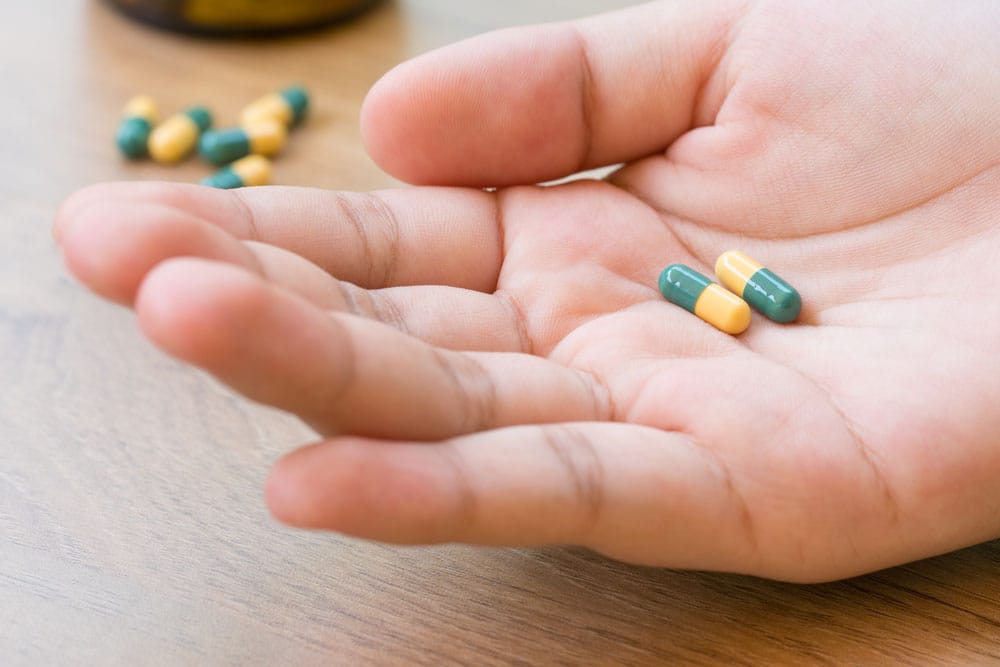Introduction
Attention Deficit Hyperactivity Disorder (ADHD) is a neurodevelopmental disorder that affects millions of people worldwide, regardless of age or gender. Characterized by symptoms like impulsivity, inattention, and hyperactivity, ADHD can have a significant impact on one’s daily life. While various treatments are available to manage ADHD, there has been growing concern about the association between ADHD and substance abuse, particularly the use of crystal methamphetamine. In this article, we will explore the symptoms of ADHD, causes, treatment options, and the relationship between ADHD and Buy crystal meth Online use.
ADHD Symptoms and Signs:
Attention Deficit Hyperactivity Disorder (ADHD) is a neurodevelopmental disorder characterized by a range of symptoms that can significantly impact an individual’s daily life. While ADHD symptoms may vary from person to person, there are common signs and features associated with the condition.
People with ADHD often find it challenging to concentrate on tasks, stay organized, and follow through with instructions. They may frequently make careless mistakes, have difficulty sustaining attention in activities, and seem forgetful in daily routines.
Hyperactivity is another key symptom. Children with ADHD may be constantly on the move, fidgeting, or talking excessively. In adults, this hyperactivity can manifest as restlessness and an inability to sit still for extended periods.
Impulsivity is the third core symptom. Individuals with ADHD may act without thinking, blurt out answers, interrupt others, or have difficulty waiting their turn. Impulsivity can lead to social and academic challenges.
These symptoms often emerge in childhood, but they can persist into adulthood. As a result, people with ADHD may face difficulties in school, work, relationships, and daily tasks. It’s essential to recognize these symptoms early and seek appropriate diagnosis and management, which may include therapy, medication, and lifestyle adjustments to help individuals with ADHD lead fulfilling lives.
ADHD Treatment:
ADHD is a neurodevelopmental disorder that impacts individuals of all ages, marked by symptoms including inattention, hyperactivity, and impulsiveness. Effective treatment strategies aim to alleviate these symptoms and improve the individual’s daily functioning and overall quality of life. Two main approaches to treating ADHD have proven to be effectives
Medication:
Medication is a common and often highly effective treatment option for ADHD. Stimulant medications are the most widely prescribed for managing ADHD symptoms. These medications include:
Methylphenidate (e.g., Ritalin):
Methylphenidate is a central nervous system stimulant that can increase the levels of certain neurotransmitters in the brain, enhancing focus and attention. It is available in various forms, including short-acting and long-acting formulations, allowing for tailored treatment plans based on an individual’s needs.
Amphetamine-based medications (e.g., Adderall):
These drugs, like methylphenidate, work to increase neurotransmitter levels, leading to improved concentration and reduced hyperactivity. They also come in different forms and dosages to accommodate individual variations.
Stimulant medications can be highly effective in managing ADHD symptoms, often providing quick relief Pain. However, their use should be closely monitored by a healthcare professional due to potential side effects and the risk of misuse. Common side effects may include insomnia, decreased appetite, and increased heart rate, but these can often be managed with adjustments to medication or dosages.
Non-stimulant medications, such as atomoxetine (Strattera) and guanfacine (Intuniv), are also available for individuals who do not respond well to stimulants or who experience significant side effects. These medications work differently, targeting other neurotransmitters and receptors in the brain to improve focus and impulse control.
Behavioral Therapy:
Behavioral therapy is another essential component of ADHD treatment, particularly for individuals who seek non-pharmacological approaches or as a complementary strategy alongside medication. Several types of therapy have been shown to be effective in managing ADHD:
Cognitive-Behavioral Therapy (CBT):
CBT is a structured, goal-oriented therapy that helps individuals with ADHD identify and change negative thought patterns and behaviors. It can teach coping strategies, time management skills, and organizational techniques to improve daily functioning.
Psychoeducation:
Psychoeducation involves educating individuals with ADHD and their families about the condition. It helps them better understand the nature of ADHD, its impact on daily life, and strategies to manage symptoms effectively.
Behavioral Interventions:
These interventions often involve setting clear goals and using rewards and consequences to reinforce desired behaviors. They can be particularly effective in children and adolescents with ADHD, helping them develop self-control and better decision-making skills.
Parent Training:
Parent training programs teach parents strategies for managing their child’s ADHD symptoms and behavior effectively. These programs can improve parent-child relationships and create a more supportive home environment.
Coaching:
ADHD coaching provides one-on-one support to individuals with ADHD, helping them set and achieve goals, stay organized, and manage their time more effectively. Coaches can offer guidance and accountability, helping individuals thrive in various aspects of their lives.
It’s important to note that a comprehensive treatment plan for ADHD often combines medication and behavioral therapy. This approach is referred to as multimodal treatment and is tailored to the individual’s specific needs and preferences.
The choice of treatment approach should be based on a thorough evaluation by a healthcare professional, considering factors such as the severity of symptoms, the individual’s age, co-existing conditions, and personal preferences. Treatment plans may need to be adjusted over time to ensure they remain effective.
In addition to medication and therapy, lifestyle modifications can also play a crucial role in managing ADHD. These may include:
1-Regular Exercise:
Physical activity is a powerful tool in managing ADHD symptoms. Engaging in regular exercise can help reduce hyperactivity, channel excess energy, and improve mood and focus. Exercise promotes the release of neurotransmitters like dopamine and norepinephrine, which play a crucial role in attention and motivation. Activities such as swimming, biking, team sports, and even yoga can be effective in calming the mind and enhancing concentration.
2-Adequate Sleep:
Ensuring a consistent sleep schedule and obtaining adequate rest is vital for individuals with ADHD. Sleep deprivation can exacerbate symptoms of inattention and irritability, making it crucial to prioritize quality sleep. Establishing a bedtime routine and creating a sleep-conducive environment can significantly impact attention and overall well-being.
3-Healthy Diet:
A well-balanced diet rich in nutrients can support brain function and minimize potential triggers for ADHD symptoms. It’s advisable to reduce excessive sugar and processed foods, which can lead to fluctuations in blood sugar levels and affect mood and concentration. Instead, focus on whole foods such as fruits, vegetables, lean proteins, and whole grains, which provide sustained energy and essential nutrients for cognitive function.
4-Environmental Modifications:
Creating an organized and clutter-free environment can greatly benefit individuals with ADHD. Minimizing distractions and maintaining a structured space can help reduce impulsivity and improve focus. Simple changes like using bins, labels, and dedicated workspaces can make a significant difference in productivity.
5. Time Management:
Tools such as calendars, planners, and reminder apps are invaluable for individuals with ADHD. These aids can help establish routines, set goals, and manage time effectively. Breaking tasks into smaller, manageable steps and prioritizing them can enhance productivity and reduce feelings of overwhelm.
6. Stress Management:
Managing stress is essential for individuals with ADHD, as stress can exacerbate symptoms. Stress-reduction techniques such as mindfulness, meditation, and deep breathing exercises can help individuals regulate their emotions and cope with the challenges of ADHD. These practices promote relaxation and emotional stability.
7. Supportive Relationships:
Building a support network of understanding family members, friends, educators, and therapists can provide essential emotional support and practical assistance. These relationships can help individuals with ADHD navigate challenges, set goals, and stay motivated.
It’s important to note that while these lifestyle modifications can be highly beneficial, they are not a replacement for medical treatment or therapy. Rather, they should complement other ADHD management strategies. Additionally, the effectiveness of these lifestyle adjustments may vary from person to person, so it’s crucial to tailor them to individual needs and preferences.
ADHD in Adults:
ADHD, or attention deficit hyperactivity disorder, is a condition that is not confined to childhood but can persist into adulthood, often with unique challenges. While it is more commonly diagnosed in children, many adults continue to grapple with the symptoms and consequences of ADHD throughout their lives.
Adults with ADHD often face a range of difficulties that can significantly impact their daily lives. One of the most common challenges is maintaining relationships. The impulsivity and inattention associated with ADHD can strain personal connections, leading to misunderstandings and conflicts. Additionally, adults with ADHD may struggle to sustain long-term employment due to difficulties with time management, organization, and concentration. These challenges can hinder career advancement and financial stability.
Managing daily responsibilities, such as household chores, bills, and personal obligations, can be overwhelming for adults with ADHD. They may find it challenging to stay organized, meet deadlines, and complete tasks efficiently. This can lead to stress and a sense of underachievement.
Diagnosing and treating ADHD in adulthood is crucial for improving the overall quality of life. Diagnosis often involves a comprehensive evaluation by a healthcare professional or psychiatrist, considering the individual’s history and current symptoms. Treatment options may include therapy, lifestyle modifications, and, in some cases, medication. With proper management, adults with ADHD can learn strategies to overcome challenges, enhance their relationships, excel in their careers, and regain a sense of control and fulfillment in their lives.
ADHD and Crystal Meth Use:
The link between attention deficit hyperactivity disorder (ADHD) and crystal methamphetamine (meth) use is indeed concerning and complex. Some individuals with untreated ADHD may be at an increased risk of turning to drugs like crystal meth Online to self-medicate and alleviate their symptoms. However, this choice can have severe and detrimental consequences for their physical and mental health.
1-Self-Medication:
People with untreated ADHD may use methamphetamine as a form of self-medication to temporarily alleviate their symptoms. Meth is a powerful stimulant that can provide a temporary boost in focus and attention. Individuals with ADHD might perceive it as a quick solution to their struggles with concentration and impulsivity.
2. Exacerbation of Symptoms:
While methamphetamine may initially seem to improve focus, it ultimately exacerbates ADHD symptoms over time. Meth use can lead to extreme hyperactivity, impulsivity, and even paranoia. The drug’s effects can become unpredictable and chaotic, making it difficult for individuals to manage their ADHD symptoms effectively.
3. Addiction:
Methamphetamine is a highly addictive substance. Continued use can lead to tolerance, meaning that individuals need increasingly higher doses to achieve the desired effects. This cycle of tolerance often leads to addiction, where individuals feel compelled to use the drug despite knowing its harmful consequences. Meth addiction can be exceptionally challenging to overcome.
4. Physical and Mental Health Problems:
Prolonged methamphetamine use can result in severe physical and mental health problems. These may include cardiovascular issues, dental problems (often referred to as “meth mouth”), cognitive impairments, and mental health disorders such as anxiety, depression, and psychosis.
5. Legal Consequences:
The possession and use of methamphetamine is illegal in most countries, leading to potential legal consequences for individuals who engage in such activities. Legal issues can further complicate an individual’s life and make it even more challenging to access the appropriate treatment and support for ADHD.
It’s important to emphasize that the use of methamphetamine is not a safe or effective way to manage ADHD symptoms. There are evidence-based treatments available, such as medication and behavioral therapy, that can provide genuine relief Pain and support for individuals with ADHD.
If someone suspects they have ADHD or is struggling with their symptoms, it is crucial to seek professional help and a proper diagnosis from a healthcare provider or mental health specialist. Treatment ADHD can be tailored to address the individual’s specific needs, offering a safer and more effective way to manage ADHD symptoms.
Conclusion
Attention deficit hyperactivity disorder (ADHD) is a neurodevelopmental condition that affects individuals across the lifespan, with symptoms ranging from inattention and hyperactivity to impulsivity. While ADHD can present unique challenges in both childhood and adulthood, effective treatment strategies are available to manage these symptoms and improve the overall quality of life.
Medication, such as stimulants and non-stimulants, can provide significant relief from ADHD symptoms when carefully prescribed and monitored by healthcare professionals. Additionally, behavioral therapies, psychoeducation, and lifestyle modifications play vital roles in helping individuals develop coping strategies, enhance their organizational skills, and navigate the complexities of daily life.
However, a concerning issue arises when individuals with untreated ADHD turn to substances like Buy crystal meth Online without prescription to self-medicate. While meth may temporarily alleviate symptoms, it ultimately worsens ADHD. While ADHD can present unique challenges in both childhood and adulthood, effective treatment strategies are available to manage these symptoms and improve the overall quality of life.
It is essential to emphasize that methamphetamine is not a safe or effective treatment for ADHD. Instead, individuals facing ADHD-related challenges should seek professional evaluation, diagnosis, and evidence-based treatment options tailored to their specific needs. With proper care and support, individuals with ADHD can lead fulfilling lives, effectively manage their symptoms, and avoid the dangers associated with substance abuse.
If you or someone you know is struggling with ADHD or substance abuse issues, reaching out to healthcare providers, mental health specialists, or addiction treatment professionals is a crucial step toward recovery and a healthier future.
symptoms, leads to addiction, and poses severe physical and mental health risks. Moreover, methamphetamine use is illegal, resulting in potential legal consequences.
It is essential to emphasize that methamphetamine is not a safe or effective treatment for ADHD. Instead, individuals facing ADHD-related challenges should seek professional evaluation, diagnosis, and evidence-based treatment options tailored to their specific needs. With proper care and support, individuals with ADHD can lead fulfilling lives, effectively manage their symptoms, and avoid the dangers associated with substance abuse.









